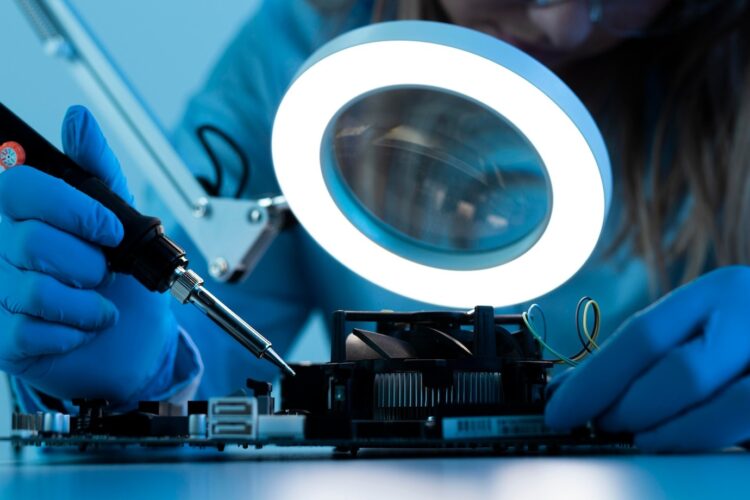You will have to deal with some tech issues eventually – it’s almost inevitable, whether you’re ready or not. It might be your smartphone acting up, a laptop slowing down, or some smart home devices going rogue. Yes, tech troubles can be a real pain.
But when these issues arise, the big question is: should you try to fix it yourself, or is it time to call in an expert? Let’s break it down into five key factors that can help you decide.
Page Contents
Complexity of The Problem
First and foremost, consider the complexity of the issue. Some tech problems are straightforward and can be easily fixed with a bit of troubleshooting. For example, if your Wi-Fi is down, a simple restart of the router might do the trick. Similarly, if an app on your phone is crashing, uninstalling and reinstalling it could solve the problem. These are issues that don’t require deep technical knowledge and can often be resolved with a quick Google search or a YouTube tutorial.
However, if you’re dealing with something more complex, like a computer that won’t boot up, or a network connectivity issue that you can’t identify, it might be time to reach out to a professional. Tech experts have the tools and knowledge to diagnose and fix these complicated problems efficiently.
Time and Effort

Source: freepik.com
Next, think about the time and effort you’re willing to invest in solving the issue. Fixing tech problems yourself can be time-consuming, especially if you’re not familiar with the technology. Simple fixes might only take a few minutes, but more involved repairs could take hours or even days.
Consider this: If you’re a busy person with a packed schedule, spending hours trying to fix a stubborn tech issue might not be the best use of your time. In such cases, it might be more practical to contact an expert who can resolve the issue quickly, allowing you to focus on other important tasks.
Cost Considerations
Cost is another critical factor. DIY repairs can save you money, but they’re not always free. You might need to purchase tools or replacement parts, which can add up. Additionally, there’s the risk of making the problem worse, leading to even higher repair costs.
Here’s a quick guide to help you decide when to DIY and when to call an expert:
- Low-cost fixes: try it yourself if it involves minimal expense (e.g., restarting your device, reinstalling software).
- Moderate-cost repairs: evaluate if you have the skills and tools before attempting (e.g., replacing a laptop battery).
- High-cost or high-risk issues: it’s safer to call an expert (e.g., fixing a broken screen, data recovery).
Remember, while saving money is great, sometimes the peace of mind that comes with professional repairs is worth the extra cost.
Warranty and Insurance

Source: freepik.com
Check if your device is still under warranty or covered by insurance. If it is, trying to fix it yourself could void the warranty, leaving you without protection for future issues. Manufacturers often have specific guidelines on how repairs should be handled, and doing it yourself might not be one of them.
For devices under warranty, it’s usually best to contact the manufacturer or an authorized repair center. They can handle the repairs without risking your warranty. Similarly, if you have insurance on your device, reach out to the insurer to see if the repair costs are covered. This way, you won’t have to bear the full financial burden of the fix.
Safety Concerns
Last but not least, consider the safety implications. Some tech repairs can be hazardous, especially if they involve electrical components or delicate parts. For instance, replacing a smartphone battery might seem straightforward, but it can be dangerous if not done correctly. There’s a risk of damaging the battery, which can lead to fires or explosions.
If the repair involves any potential safety risks, it’s better to leave it to the professionals. They have the necessary training and equipment to handle such repairs safely. Your safety should always be the top priority, and no tech issue is worth putting yourself at risk.
Conclusion
In the end, deciding whether to fix a tech problem yourself or call an expert comes down to these key factors. By weighing them, you can make an informed decision that suits your situation best. Sometimes, a bit of DIY spirit can save the day, but there are cases when calling in the pros is the smartest move – be it a faulty console, or an urgent need in iPad screen repair. So, next time your tech acts up, take a moment to assess the situation and choose the path that’s right for you.




